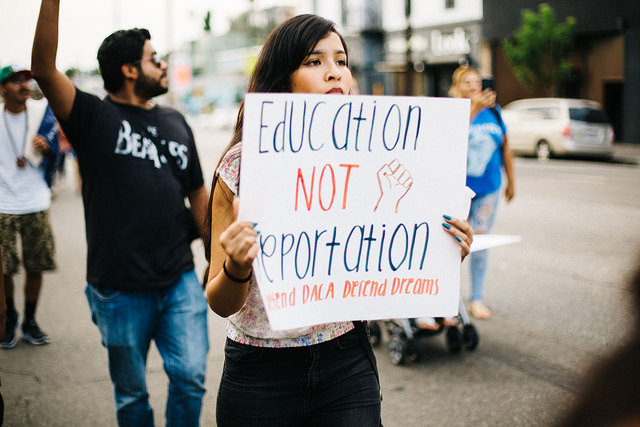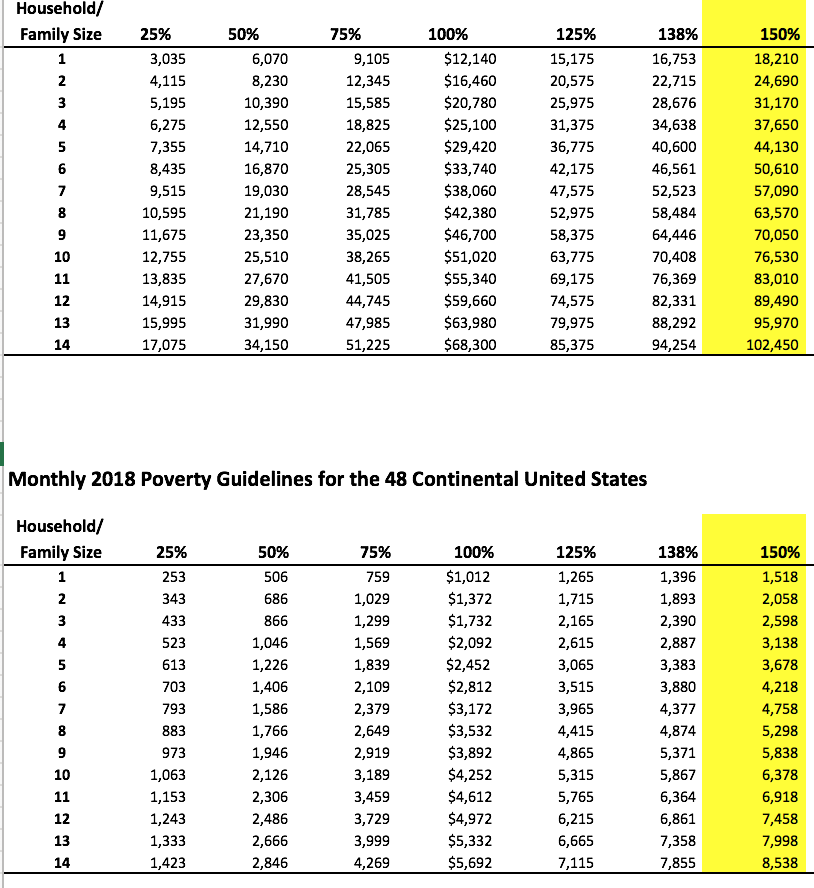In this post, we will discuss the limited circumstances in which applicants may request a fee exemption for Form I-765 filed in connection with a renewal request for consideration of Deferred Action for Childhood Arrivals (DACA).
In most cases the filing fee to request a renewal of Deferred Action for Childhood Arrivals cannot be waived, but fee exemptions are available in the following limited circumstances:
- Applicants under 18 years of age who are homeless, in foster care, or otherwise lack parental or other familial support, with income that is less than 150% of the U.S. poverty level may seek a fee exemption
- Applicants who cannot care for themselves because of a serious chronic disability with an income that is less than 150% of the U.S. poverty level may claim a fee exemption
- Applicants, who at the time of their request, have accumulated $10,000 or more in debt in the past 12 months, as the result of unreimbursed medical expenses for themselves or family members, receiving an income that is less than 150% of the U.S. poverty level may claim an exemption of the filing fee
To determine whether your income is less than 150% of the U.S. poverty level please reference the chart below:
In order to be considered for a fee exemption, applicants must submit a letter and supporting documentation demonstrating that they fall into one of the above-mentioned categories. Applicants must first file a request for a fee exemption and receive an approved fee exemption, before filing a request for consideration of deferred action on Form I-821D. Applicants may not submit Forms I-821D, I-765, and I-765WS without a record that a fee exemption has been approved.
USCIS has provided the following guidance regarding the process to apply for a fee exemption request:
Steps to Request an Exemption from the fee for a Form I-765 filed with a Request for Consideration of Deferred Action for Childhood Arrivals
Step 1:
You must:
- Send a letter in English requesting the exemption. USCIS must be able to identify the individual(s) who needs the exemption and the exemption category requested.
- Attach documentation (copies are acceptable) supporting your request. The supporting documents must be in English or accompanied by a certified English translation.
- The letter must be signed by the individual requesting consideration for the fee exemption. If the individual needing the exception cannot sign, provide an explanation and evidence that the person who does sign is a parent or legal guardian.
- Each person requesting to be exempt from paying the filing fee should submit their own letter. Multiple individuals should not be grouped into one letter.
- Mail your request to: U.S. Citizenship and Immigration Services Attn: Deferred Action for Childhood Arrivals Fee Exemption Request 20 Massachusetts Ave., NW 4th Floor, Suite 4300 MSC 2300 Washington, DC 20529
Step 2: What Happens Next
USCIS will:
- Review your letter and supporting documents to determine if you are in a circumstance that warrants a fee exemption.
- Request additional evidence if needed.
- Approve or deny your fee exemption request.
- Send you a fee exemption approval or denial letter.
USCIS will endeavor to provide an answer to your request within 90 days.
Step 3:
- If approved, attach a copy of the fee exemption approval letter to the front of your request package, which must include Forms I-821D, I-765 and I-765WS.
- If denied, submit the required filing fee with your forms or resubmit your fee exemption request with corrections or additional documents.
- File the Forms I-821D, I-765 and I-765WS according to the form instructions
Questions and Answers
What documents must I submit with my request? This depends on the category for which you are requesting an exemption from the fee. USCIS must be able to determine your eligibility by examining your supporting documents. The supporting documents must be legible and in English or accompanied by a certified English translation.
What are some examples of acceptable documentation? This list contains examples of acceptable documentation and is not exhaustive:
Exemption: You are under 18, homeless, in foster care, or otherwise lacking any parental or other familial support and your income is less than 150% of the U.S. poverty level.
- Evidence you are under 18, such as a birth certificate or school records.
- Affidavit from a community-based or religious organization that attests to your homelessness or lack of parental or familial support.
- Letter or statement from an agency that you are currently in foster care.
- Evidence of your current income, such as tax returns, banks statements or paystubs, or an affidavit from you or a third party stating you do not file tax returns, have no bank accounts and/or have no income or evidence to prove your income level.
Exemption: You cannot care for yourself because you suffer from a serious, chronic disability and your income is less than 150% of the U.S. poverty level.
- Medical records or insurance records that describe your serious, chronic disability.
- Evidence of your current income, such as tax returns, banks statements or paystubs, or an affidavit from you or a third party stating you do not file tax returns, have no bank accounts and/or have no income or evidence to prove your income level.
Exemption: You have accumulated $10,000 or more in debt in the past 12 months as a result of unreimbursed medical expenses for yourself or an immediate family member and your income is less than 150% of the U.S. poverty level.
- Medical bills, insurance records, or other reliable evidence of unreimbursed medical expenses of at least $10,000.
- Evidence of your current income, such as tax returns, banks statements or paystubs, or an affidavit from you or a third party stating you do not file tax returns, have no bank account, and/or have no income or other evidence to prove your income level.
Common Reasons Fee Exemption Requests are Denied
Your letter or supporting documents are not in English or accompanied by a certified English translation.
- Your letter is not signed.
- Your supporting documentation does not demonstrate you fall into any of the categories exempt from the fee.
- You did not submit supporting documentation.
- We were unable to determine your current income.
- The documentation is not legible.
- You did not respond timely or completely to our request for additional evidence.
- You submitted your request with forms and fees
For more information on filing a DACA renewal request please click here.
 Visa Lawyer Blog
Visa Lawyer Blog



